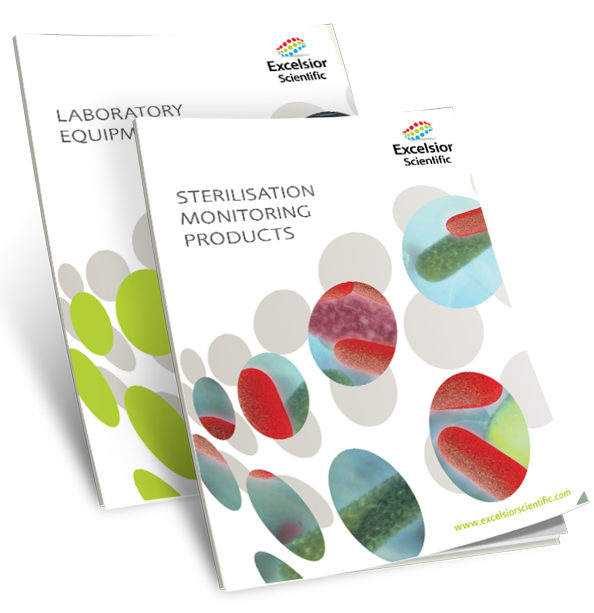Excelsior biological indicators provide a convenient, easy-to-use system for the reliable evaluation of your sterilisation processes including Steam, Ethylene Oxide, Radiation, Hydrogen Peroxide and Dry Heat.
- Spore strips, discs and threads
- Spore suspensions
- Spore Ampoules
- Self-Contained Biological Indicators (SCBIs)
Excelsior can manufacture custom Biological Indicators using a variety of carriers in combination with any organism. Please enquire to obtain additional information about Excelsior’s capabilities to manufacture a custom indicator.
These colour-change indicators are manufactured using water-based, environmentally friendly, heavy metal free ink formulations.
Brilliant colour transitions allow for end users to easily note when product has been exposed to a sterilisation process. Excelsior offers a variety of standard configurations as well as customised indicator labels in a variety of sizes and shapes to meet your specifications.
Chemical Process Indicators are available for monitoring Steam, Ethylene Oxide, Radiation, Hydrogen peroxide, Dry Heat, Steam-Formaldehyde and Chemiclave sterilization processes.
- Chemical Process Indicators (dots)
- Custom Indicator Labels (labels, strips and ribbon)
- Sterilization Monitoring Inks (for Flexographic, gravure and silk screen printing processes)
Excelsior offers Bowie & Dick Test packs for monitoring effective steam penetration in vacuum autoclaves.
The Bowie Dick Test Pack consists of a series of steam penetration (air removal) barriers in the centre of which is a chemical indicator sheet.
The test pack should be placed into an empty autoclave chamber and put through a recommended autoclave cycle of 134°C for 3.5 minutes.
Excelsior Scientific Growth Promotion Test Suspensions are ready-to-use microbial suspensions for media performance, microbial assays, enumerations and susceptibility testing where <100 Colony Forming Units per aliquot are required.
Organisms include:
- Bacillus subtilis
- Clostridium sporogenes
- Candida albicans
- Aspergillus brasiliensis
- Kocuria rhizophila
- Geobacillus stearothermophilus
- Pseudomonas aeruginosa
- Staphylococcus aureus
- Escherichia Coli
- Bacillus atrophaeus
- Salmonella enterica
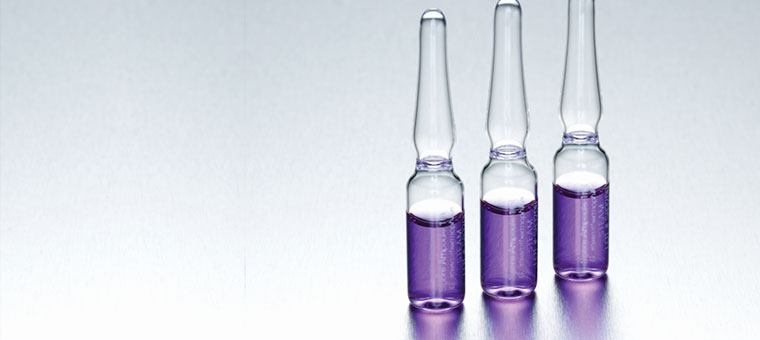
Biological Indicators
Excelsior Scientific offers the industry's most complete line of Biological Indicators (BI) designed to meet the ANSI/AAMI/ISO/EN 11138 standards.
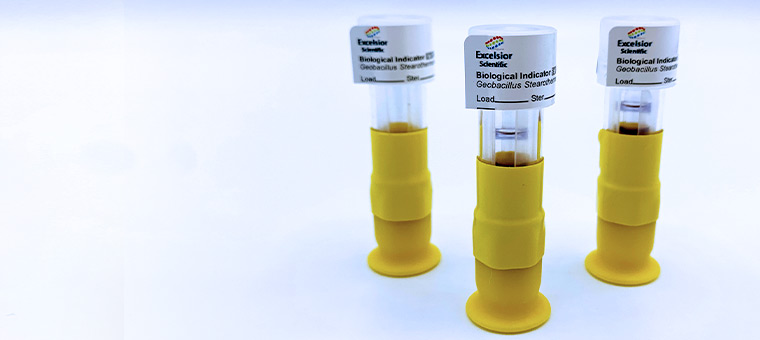
Instant Biological Indicators
While everyone is rapidly waiting, get your results in an instant. Excelsior now offering a steam BI which provides an instant result within 30 seconds.
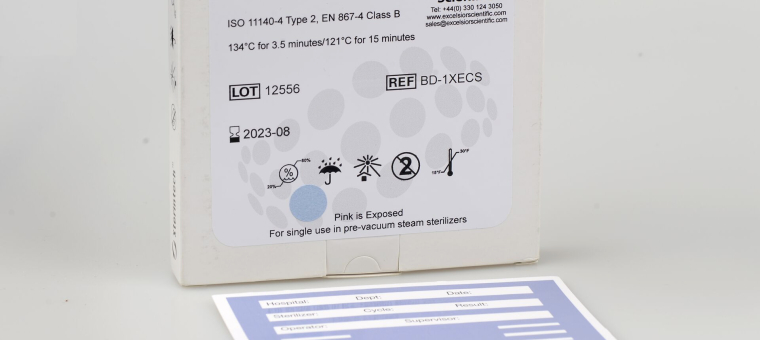
Bowie & Dick Tests
Excelsior offers Bowie & Dick Test packs for monitoring effective steam penetration in vacuum autoclaves.
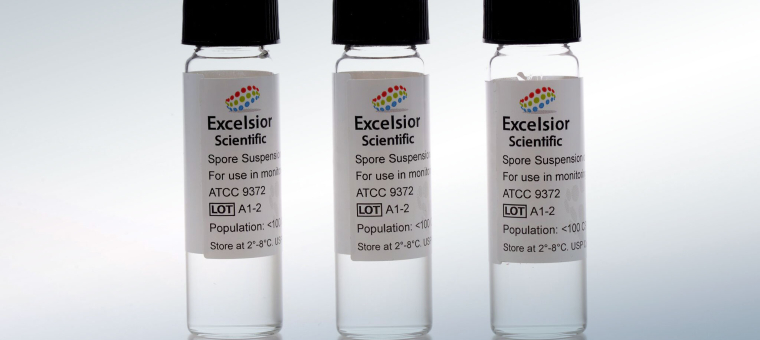
Growth Suspension
Excelsior’s Growth Promotion Test Suspensions are ready-to-use microbial suspensions that meet the requirements for media performance testing.
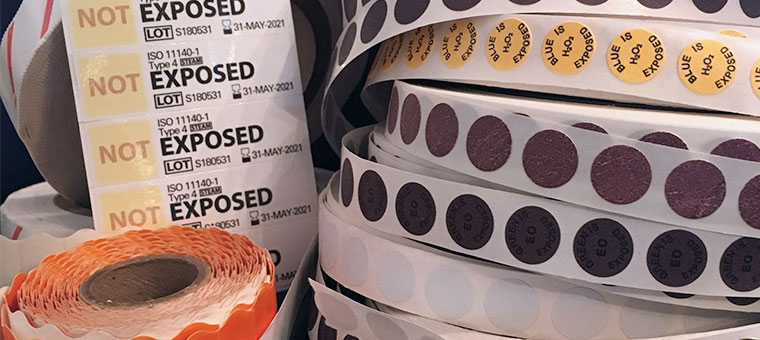
Chemical Indicators
Chemical Process Indicators are self-adhesive labels suitable for application by hand or Meto gun on shipping cartons or individual packages.
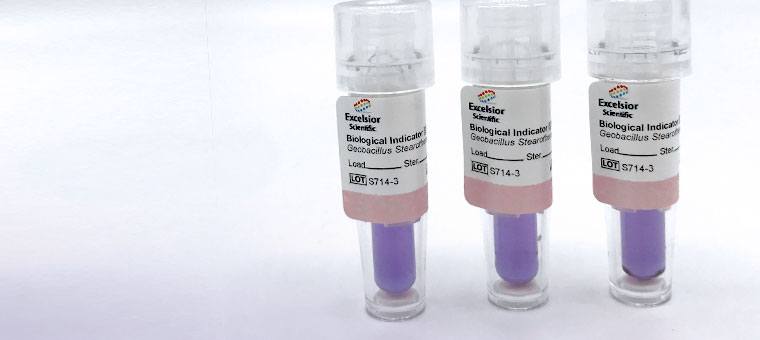
Self-Contained Biological Indicators
Excelsior Scientific offers Mini and Self-Contained Biological Indicators (SCBI) for monitoring steam ,Ethylene Oxide and Hydrogen Peroxide sterilization processes.
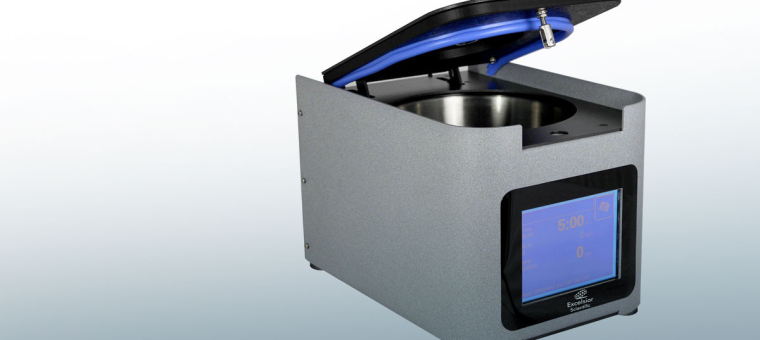
Laboratory Equipment
Renowned worldwide for optimum performance at an exceptional price, our range of laboratory equipment offers superb reliability & stability with a premium finish.
Sterilisation Monitoring Products and Lab Equipment
Known for their consistent, reliable performance, Excelsior Scientific sterilisation monitoring products are used by pharmaceutical and medical device manufacturers, contract sterilisers, and other related industries.
Renowned worldwide for optimum performance at an exceptional price, all our equipment offers superb reliability and stability with a premium finish.

